20+ Years Experience
Specialist Cocaine Rehab

Enquire Today For A Free No Obligation Quote
Cocaine addiction is a pervasive issue that affects individuals from all walks of life, and its consequences can be devastating, both physically and mentally.
By delving into the dark realities of cocaine abuse, we aim to raise awareness and empower those struggling with addiction to take the courageous step of seeking professional assistance.
Cocaine, a powerful stimulant derived from the coca plant, has gained notoriety for its immediate and intense effects on the brain. Initially, it may seem enticing, offering temporary feelings of euphoria, increased energy, and confidence.
However, beneath its seemingly alluring facade lies a host of hidden dangers that can rapidly spiral out of control.
Here we will unmask these dangers and provide insight into the profound impact cocaine addiction can have on individuals, their families, and society as a whole.
We explore the physical and mental health risks associated with long-term cocaine use, highlighting the potential for heart problems, neurological disorders, psychiatric conditions, and irreversible damage.
However, we firmly believe in the power of seeking help and the transformative journey of recovery. Overcoming cocaine addiction (or other drugs) is an attainable goal with the right support, guidance, and treatment options. By seeking help, individuals open the door to a brighter future, free from the grip of addiction and its harmful consequences.
Throughout this page, we will discuss the various reasons why seeking help is crucial for those battling cocaine addiction.
We will explore the available resources, treatment approaches, and support systems that can help individuals reclaim their lives and rebuild their relationships. We want to inspire hope and instil the belief that recovery is possible, no matter how bleak the situation may seem.
We invite you to explore the valuable information, personal stories, and insights presented on this page.
Our aim is to provide a comprehensive understanding of the hidden dangers of cocaine and empower individuals to take the necessary steps towards a healthier, happier, and addiction-free life.
Remember, seeking help is not a sign of weakness but a courageous act that paves the way for a brighter tomorrow.
The immediate effects of cocaine are powerful and deceptive, luring individuals into a world of intense euphoria and increased energy. When cocaine enters the bloodstream, it quickly reaches the brain, where it disrupts the normal communication between neurons.
The result is an immediate surge of dopamine, a neurotransmitter associated with pleasure and reward. Users often experience an intense rush of euphoria, a sense of invincibility, and heightened self-confidence.
However, behind this fleeting sense of pleasure lies a range of dangerous immediate effects that can have detrimental consequences on both physical and mental health. Cocaine acts as a potent stimulant, increasing heart rate, blood pressure, and body temperature.
The cardiovascular system is particularly vulnerable, as the drug constricts blood vessels, leading to reduced blood flow and oxygen supply to vital organs. This can result in heart palpitations, chest pain, and even heart attacks or strokes, particularly in individuals with pre-existing cardiovascular conditions.
Moreover, the immediate effects of cocaine extend beyond the cardiovascular system. A cocaine user may experience heightened alertness, restlessness, and increased energy levels, often accompanied by a decreased need for sleep or food. However, these short-term benefits come at a cost.
The prolonged use of cocaine (and other drugs) can lead to irritability, anxiety, and paranoia. Drug use can distort perception, leading to hallucinations, delusions, and even violent or aggressive behaviour.
It is crucial to understand that these immediate effects are not without consequences.
While the initial rush may be enticing, the dangers and risks associated with cocaine usage should not be overlooked or underestimated.
Seeking help and treatment for cocaine addiction is vital to mitigate the negative side effects and prevent long-term harm to both physical and mental well-being.
Understanding and acknowledging the physical and mental risks of cocaine is crucial to raising awareness about the dangers associated with its use.
By recognising these risks, individuals are better equipped to make informed decisions and seek the necessary help and support to overcome addiction and protect their overall health and well-being.
Cocaine poses numerous physical risks that can have severe implications for the body.
The drug’s stimulant properties place immense strain on the cardiovascular system, significantly increasing the risk of heart problems such as heart attacks, arrhythmias, and even sudden cardiac arrest.
Prolonged cocaine use can lead to the constriction of blood vessels, causing reduced blood flow to vital organs and increasing the chances of organ damage or failure. Additionally, there is also an increased risk of respiratory issues, such as lung damage and respiratory distress, is heightened among cocaine users.
Other physical risks include the potential for seizures, strokes, weight loss, malnutrition, and a weakened immune system, making individuals more susceptible to infections and diseases.
Substance use may also make users become more susceptible to infectious diseases like HIV and hepatitis c.
In addition to the physical risks, cocaine abuse takes a significant toll on mental health. Regular use of cocaine can lead to physical and psychological dependence and addiction, causing individuals to prioritise obtaining and using the drug over other aspects of their lives.
It can also exacerbate or trigger mental health conditions such as anxiety disorders, depression, and bipolar disorder. The intense highs and subsequent crashes associated with cocaine use can result in emotional instability, mood swings, and impaired decision-making abilities.
Moreover, long-term cocaine abuse can lead to paranoia, hallucinations, and psychosis, characterised by a loss of touch with reality. These mental risks of cocaine not only impact the individual but also strain relationships, contribute to social isolation, and hinder overall well-being.
It is important to note that cocaine overdose can be life-threatening and requires immediate medical attention.
If you suspect someone is experiencing a cocaine overdose or if you are experiencing these symptoms yourself, please call 999 for medical emergencies or seek urgent medical assistance.
Early intervention can make a significant difference in saving lives and preventing further complications.
We have listed some other symptoms of a cocaine overdose below:
Cocaine overdose can also cause permanent damage including sudden death.
To learn more about the symptoms of cocaine abuse, please speak to our team.
The long-term effects of cocaine abuse can be devastating for both young people and older people.
Prolonged use of cocaine can lead to significant physical health problems, including cardiovascular damage such as heart disease, heart attack, and strokes. Chronic cocaine use can also cause respiratory issues, including lung damage and respiratory infections.
Additionally, repeated cocaine use can lead to gastrointestinal complications, such as abdominal pain, ulcers, and bowel decay.
Beyond the physical consequences, the long-term consequences of cocaine abuse can profoundly impact mental health. Persistent cocaine use can contribute to the development or exacerbation of mental health disorders, including depression, anxiety disorders, and psychosis.
Cognitive function may also be severely affected, leading to difficulties with memory, attention, and decision-making. The overall psychological well-being of individuals may suffer as they experience mood swings, irritability, and a greater risk of suicidal thoughts or behaviours.
Furthermore, long-term cocaine abuse often disrupts personal relationships, strains family dynamics, and jeopardises professional and academic achievements.
Financial difficulties and legal issues are common consequences of ongoing cocaine addiction as well.
Recognising the serious and lasting consequences of long-term cocaine abuse is crucial in motivating individuals to seek help and embark on a journey of recovery, reclaiming their physical and mental health, as well as rebuilding their lives.
Cocaine withdrawal can be a challenging and intense process as the body and brain adjust to the absence of the drug. The symptoms of cocaine withdrawal can vary in severity and duration, typically peaking within the first few days and gradually improving over time.
Common withdrawal symptoms include:
Some individuals may also experience intense cravings for cocaine, which can be one of the most difficult aspects of withdrawal to overcome.
In severe cases, withdrawal may lead to more pronounced symptoms such as insomnia, agitation, and even suicidal thoughts. It is essential to approach cocaine withdrawal with professional guidance and support to safely manage the physical and psychological challenges.
Through proper medical care, therapy, and a strong support system, individuals can navigate the withdrawal process and lay the foundation for a successful recovery journey.
Seeking help is crucial for individuals battling cocaine addiction due to the complex nature of the addiction and the potential dangers it poses. Cocaine addiction is a chronic, relapsing condition that often requires professional intervention and support for successful recovery.
Professional cocaine addiction treatment programs provide a structured and safe environment for individuals to address their addiction, learn coping mechanisms, and develop strategies to prevent relapse.
Additionally, seeking help offers access to a wide range of resources, including medical supervision, counselling, and therapy tailored to address the unique challenges of cocaine addiction.
With professional assistance, individuals can address the underlying causes of their addiction, heal from the physical and psychological damage caused by prolonged drug use, and develop healthier coping mechanisms to navigate life’s challenges.
Moreover, if you seek treatment for cocaine addiction you will receive a supportive community of peers and professionals who understand their struggles and can provide guidance and encouragement throughout the recovery process.
Breaking free from the grip of cocaine addiction is a courageous step, and by seeking help, individuals open themselves up to the opportunity for long-lasting recovery and a brighter, drug-free future.
There are a range of cocaine treatment options available to you. We have listed a few examples below:
If you, a friend or a family member is struggling with cocaine addiction, please make sure to contact our team today. We can discuss the options available to you and let you know about the costs of our rehab centres.
There is nothing to be ashamed about, please reach out today for assistance!
If you want to find out more about addiction treatment, we can offer assistance. Have a look at the list below for more information:








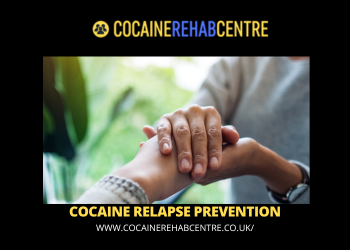
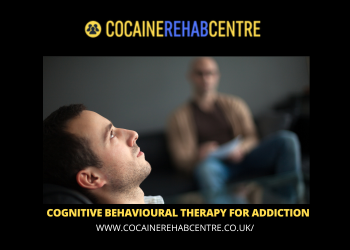





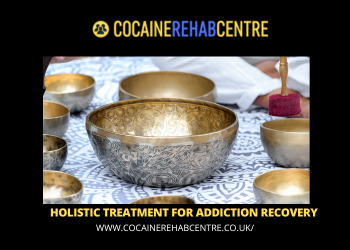




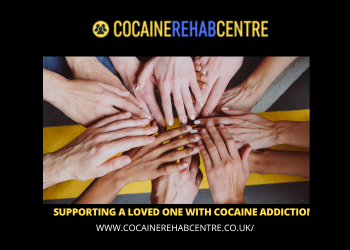

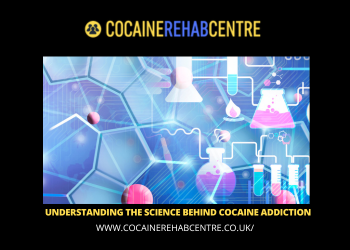


We Aim To Reply To All Enquiries With-in 24-Hours